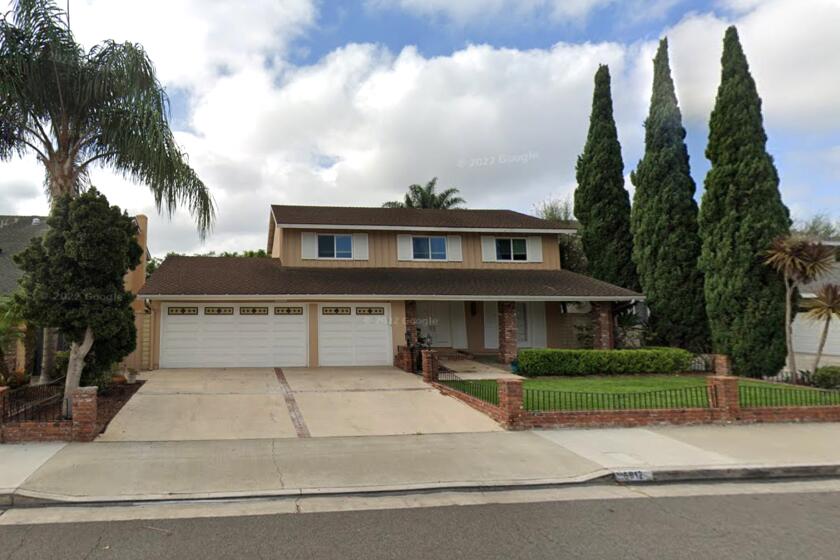Costa Mesa goes to court to try to shut down 2 operators’ ‘unlawful’ sober-living homes
Costa Mesa is going to court in a bid to shut down sober-living homes that city officials say are operating illegally.
In two complaints filed July 17 in Orange County Superior Court, the city alleges that the homes in question — run by Casa Capri Recovery at 269 and 271 16th Place and the Ohio House at 647 and 653 Joann St. — have remained open despite failing to obtain required local permits, which would be a violation of the Costa Mesa municipal code.
The City Council unanimously approved the legal actions.
“We are putting these unlawful operators on notice that we will not allow them to openly flout our ordinances,” Mayor Sandy Genis said in a statement. “We fully support the rights of individuals to seek recovery from addiction, but our ordinances are designed to minimize the concentration of those homes and avoid disrupting the atmosphere of our neighborhoods.”
Brandon Stump — founder of the Ohio House — said in an interview Monday that his organization plans to wind down its operations on Joann Street in the next few months.
“Although I have a case here to fight for these properties, I see the city’s concerns and I respect that,” he said. “I’m going to continue about my business elsewhere.”
Sober-living homes typically house recovering alcoholics and drug addicts, who are considered disabled under state and federal laws.
In 2014 and 2015, the City Council adopted two ordinances that imposed new permitting requirements on such facilities and stipulated that they, group homes and licensed alcohol and drug treatment facilities, must be at least 650 feet from one another in residential areas.
Though Casa Capri applied for the conditional use permits required for its facility on 16th Place, which houses up to 28 women, the council unanimously denied the requests in October.
The operator then filed a federal lawsuit against Costa Mesa on Feb. 26, alleging the city’s regulations are discriminatory and violate its civil and constitutional rights. That case is ongoing.
“I don’t know what the city is seeking to gain,” Steven Polin, a Casa Capri attorney, said Monday. “All the issues are going to be resolved in federal court.”
Costa Mesa residents have grown increasingly vocal in recent years in their opposition to the proliferation of sober-living homes in the city, blaming the facilities for creating or exacerbating problems with traffic, parking, noise, litter, crime and other issues.
According to the city’s latest figures, Costa Mesa has 18 city-approved sober-living or group homes and about 100 others that are licensed through the state Department of Health Care Services.
Stump, however, said facilities like the Ohio House provide a life-changing — and lifesaving — service and that many sober-living residents are unfairly stigmatized as criminals or bad people when they’re actually “good humans who fell into addiction and need professional help.”
“There’s something extremely special going on here, where families from all over the world have relied on the care that their family members get at the Ohio House,” he said. “We have shaped a lot of change in the country through the work we do.”
Twitter @LukeMMoney
All the latest on Orange County from Orange County.
Get our free TimesOC newsletter.
You may occasionally receive promotional content from the Daily Pilot.




